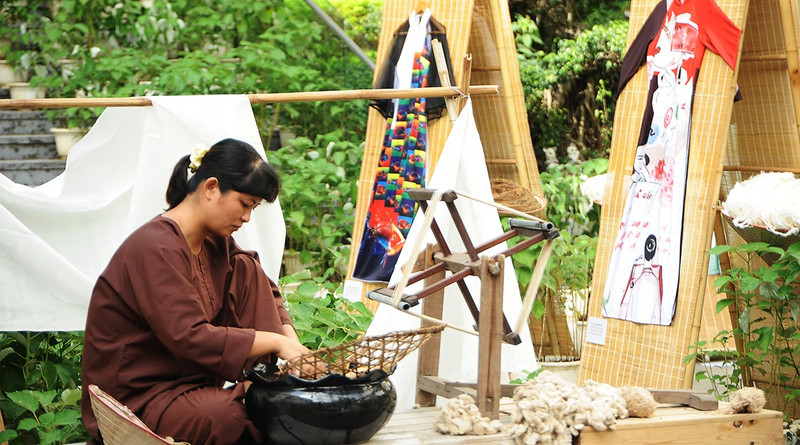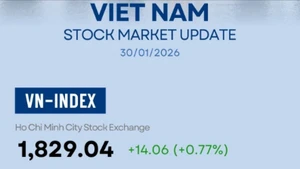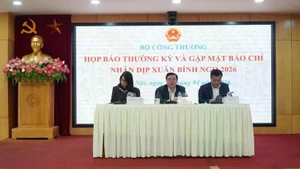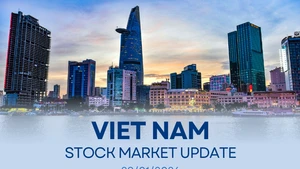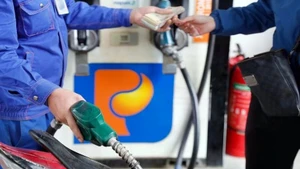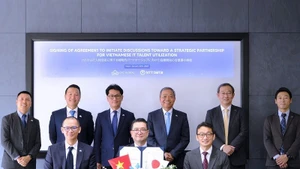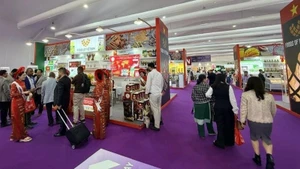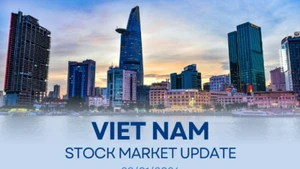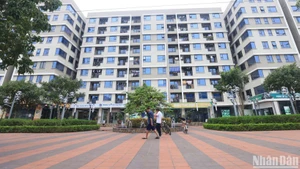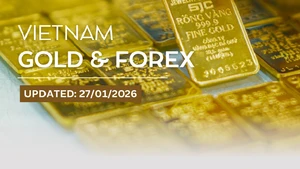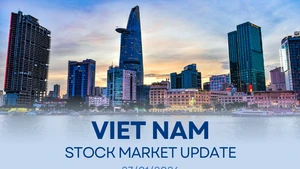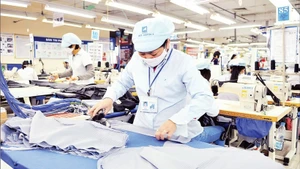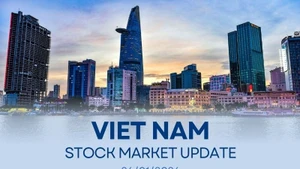As an environmental engineer, Vu Thi Lieu has long been concerned about the environmental harm caused by millions of tons of discarded pandanus leaves left by farmers every year after each harvest. Meanwhile, in Europe, pandanus fibre is considered one of the premium fibres used by many major fashion brands.
Although pandanus fibre is 2.5 times more expensive and has similar moisture-wicking properties, its mechanical durability is far superior to cotton. To soften the fibres, there are numerous steps and methods that ethnic minority groups have applied, such as dew-drying and stone rubbing.
Thus, Lieu, along with like-minded individuals, has focused on researching how to extract pandanus fibres and supply them to the textile industry.
Start-up at the right time
Sharing her entrepreneurial journey, Vu Thi Lieu, CEO and founder of ECOSOI Research, Production, and Fiber Development Joint Stock Company, said that 10 years ago, no one would have dared to think about starting a business focused on environmentally friendly fibres. At that time, people did not fully recognise the necessity of "greening" the textile industry, where raw materials are the most critical component.
Today, more than 250 global fashion brands have set standards and responsible environmental guidelines for their suppliers.
According to the global consumer survey conducted by McKinsey in April 2020, 60% of consumers have cut back on spending on fashion, a trend expected to continue in the short and medium term. In the long term, 65% of consumers are shifting from fast to more basic and durable fashion, and 67% are more concerned about fashion brands' environmental and social sustainability. This pressure from consumers will drive brands to commit to and take action to improve sustainability across their supply chains.
“We are fortunate to have started our business at the right time. Therefore, after a journey of introducing, advising, and confirming the advantages of our solutions and products, many customers, both domestically and internationally, have come to us on their own. Notably, 90% of our revenue currently comes from export activities”, Vu Thi Lieu said.
Towards "greening" production, Vang Vien Thong, CEO and founder of the fashion brand REPEET, which uses recycled materials, also shared that in line with Vietnam's commitment to Net Zero at COP26, REPEET has been actively working to reduce carbon emissions, cut plastic waste released into the environment, and optimise water consumption in textile production.
Instead of using polyester derived from petroleum, REPEET produces sustainable fashion products from recycled polyester fibres sourced in Vietnam. The brand has successfully built a supply chain that includes collecting, sorting, recycling, producing fibres, yarns, weaving fabrics, and creating fashion products, contributing to a 57% reduction in carbon emissions and a 70% savings in water consumption. By using 10 tonnes of REPEET fabric, nearly 1.45 million PET plastic bottles have been recycled, reducing carbon emissions equivalent to a car travelling 57,000 kilometres while saving 70,000 litres of water.
"Being a pioneer in recycling plastic waste in Vietnam into sustainable fashion products not only brings environmental benefits but also opens up a new business model, contributing to the sustainable development strategy of the global textile industry", Thong said.
Difficulties in domestic market
Assessing the potential for startups in the sustainable development sector in Vietnam, Pham Hong Quat, Director of the Market Development and Science and Technology Enterprises Department under the Ministry of Science and Technology, stated that this is a field full of opportunities, especially as Vietnam is actively promoting its commitment to reduce emissions at COP 26. In the fabric and textile manufacturing sector, many startups have succeeded right from the idea stage, attracting investment very effectively because this sector aligns with current trends.
However, businesses have stated that there are still several barriers in the domestic market. One of the main challenges is consumer awareness and the willingness to "pay" for environmentally friendly products, which remains limited.
"Domestic consumers still prefer fast fashion products at low prices, while producing recycled or nature-derived products often involves many stages, leading to higher costs. As a result, our domestic market share accounts for less than 10%, while our products have reached Europe and many countries around the world", said the founder of ECOSOI.
According to Thong, although the domestic market is massive, businesses are still waiting for changes in consumer behaviour. The company primarily targets more demanding markets such as Japan, the US, and Europe, where product quality and sustainability criteria are prioritised.
The garment and textile industry, in general, and fibre production, in particular, face inherent barriers. Most stages in the fibre production, bleaching, and dyeing processes are highly polluting. This is one of the reasons why many developed countries are not keen on this sector. To reduce pollution and lower production costs to near-impossible levels, consumer habits, particularly the willingness to pay more for eco-friendly products, will be a decisive factor in the long term.
According to the World Wide Fund For Nature (WWF) and the Vietnam Textile and Apparel Association (VITAS), the concept of "greening" the textile industry means that the sector will operate in a way that maximises resource efficiency and reduces waste, eliminates harmful substances, and prevents microfiber pollution. It involves transforming how clothes are designed, sold, and used to minimise environmental impact and improving recycling capabilities by altering designs, collecting, and remanufacturing materials. Additionally, the goal is to transition toward using renewable raw materials.
